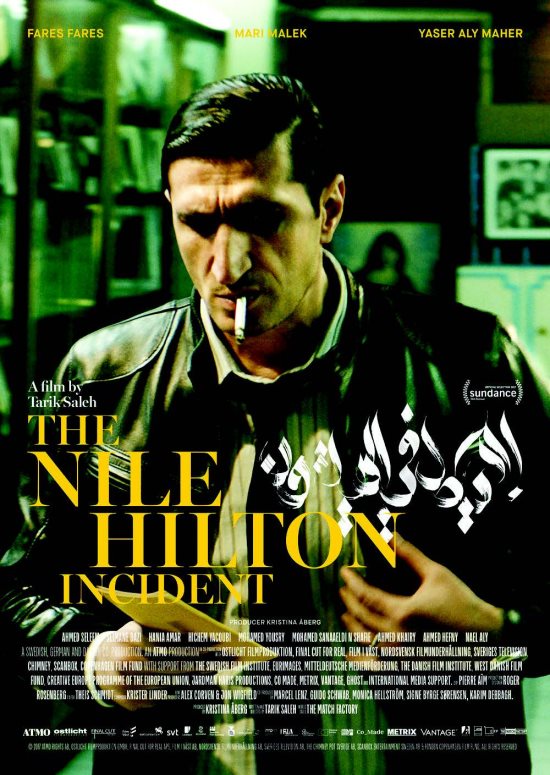
| ||||||
Set in Cairo on January 2011, a few days before the revolution, the film opens with a young singer being murdered in a room of one of the town's luxury hotels. Noredin Mustafa, the grouchy investigator in charge of the case, begins to realize that those responsible for the murder might be close to then President Hosni Mubarak.
Think of a very "noir" version of "L.A. Confidential." The same ingredients are at play here: the murder of a glamorous woman, blackmail, corruption at the highest political level, and the crushing of ordinary people who had the misfortune to be linked to the case. The social and political portrait of the Cairo megalopolis at a crucial historical moment also emerges during this captivating crime investigation.
The story that inspired the movie took place in 2008. At the time a giant of the construction industry and member of parliament, who belonged inside Mubarak's close inner circle, was arrested and condemned for having paid a high-ranking police officer to kill Tamim.
The Swedish director of Egyptian decent, Tarik Saleh, said in an interview to CineEuropa that the incident made the headlines for months in Egypt. "It was incredible and strange! The trial was for Egypt what the O.J. Simpson case was for America: everyone followed it. So I started writing a screenplay based on these events, as I got the feeling it was a sign of the first cracks starting to appear in the system." Saleh changed the timing of his movie to 2011 after the Arab Spring started and Egyptians took to the streets.
The prerevolutionary tensions add to the dramatic aspect of the movie as Noredin is slowed in his efforts by the protesters in Tahrir Square and the increasingly violent repression of the demonstrations.
Saleh uses a film technique made to resemble first-hand video filming of live events and puts the spectator in the middle of a very messy system deeply plagued by corruption. All low-level cops get bribes and when an inspector wants to arrest a suspect outside of his jurisdiction he has to give a kickback to his local colleague.
At the beginning of the movie, Noredin is a cop like any other; he belongs to the system and gets his share, as it is normal. But he is also a solitary individual and has a conscience. Something inside him cannot accept seeing others crushed while high power people get away with it. As the film develops, Noredin grows into the form of a tragic hero; he wants to find the truth and bring the culprits to justice even if they are the highest-ranking people in his country, and even if that means risking his own life.
Saleh chose Fares Fares to play Noredin, a forceful and surprising actor with a face as rough as his attitude. "The Nile Hilton Incident" received the grand jury prize for dramatic film in the world cinema section at the Sundance Film Festival a few months ago.
An Egyptian friend of this reporter recalled going back to Cairo six months after the events at Tahrir Square and how his brother was hopeful things had changed. But when he was stopped by a police officer for a traffic violation he was given the old alternative: pay a bribe or face endless administrative hassles. He paid, and was sad to do it.
Saleh's film underscores how supporting all the little everyday infractions pave the way to larger crimes.
"The Nile Hilton Incident" is part of the International Film Showcase. It will play at the Orinda Theatre for one week starting Feb. 2.
Reach the reporter at:
